Draft Constitution: Moving a social substratum
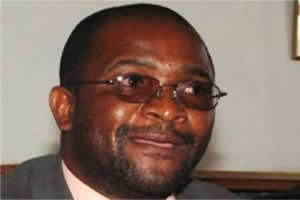
assisted Zanu-PF in knowing just how much work to put into revising the draft in order to upset the formations’ calculations.
By making constitution-making a key electoral strategy, the MDC attracted the kind of vicious Zanu-PF counter-assault they are now enduring. A better strategy would have been to simulate a phlegmatic indifference to whatever Zanu-PF was doing, however exercised they may have been.
After all, they were never going to stop Zanu-PF from reviewing the document, however much howling they did. And Mwonzora is not quite the face to produce and project when your wish is to put your enemy off scent. His whisper reverberates with the boom of a fart in a long cylindrical jar.
If Kariba was signed and dropped, so . . .
Before we get to the substance of Zanu-PF’s review exercise, a few points that ridicule the formations’ fat sounds and furies. Did I overhear Mwonzora arguing that the Copac draft was signed and, in his warped judgement, sealed by negotiators?
Did I?
Well, if I heard him correctly, was there no one in his party to remind him gently that that document agreed to by all negotiators and embraced by all principals — a document called the Kariba Draft — was still discarded after better, more superior tattoos than the totem-less Copac draft can ever lay claim to? After all, the Copac draft is Kariba reincarnate, is it not?
So initialled draft and can and in fact do change, can and in fact get abandoned, never mind their artful resurgence in after-life.
And it was the two formations which taught Zanu-PF that signatures do not quite matter; they merely authenticate documents which may be abandoned, indeed that they are mere markers of a disposable consensus once enjoyed some time in the past.
Immutability of signatures?
This tired argument gets more stale and smelly when it issues from Welshman Ncube’s mouth. Does the argument imply his sacrosanct regard for signed document? Let’s test him. The GPA bears the argument of one Arthur Mutambara, a.k.a. MDC-M leader.
And “M” stands for Mutambara, Arthur Mutambara, the only MDC-M leader there can ever be! GPA does not know anyone called Welshman Ncube, except as one Arthur Mutambara’s negotiator! Equally, the
GPA does not know a party called MDC-N, anymore than it recognises Dabengwa’s ZAPU, or Mutumwa Mawere’s just announced what’s-its-name party.
By challenging Mutambara’s status as a principal, Ncube ousts one of the hands that signed the GPA, ironically after his promotion by him. I hope this far; Welshman finds the argument, itself a logical extension of his reasoning, sweet and sexy, not sour and salty.
That is what happens when you beat the path of expediency, indeed when you reason outside principle. You cannot invoke the argument of immutability of signatures, only to urge us to fall short of its full conclusions, of its full implications. As with Shakespeare’s Shylock, Mutambara can very easily say: “The villainy you teach me/I execute.” Fully too!
 When Zuma rides roughshod over sovereignty
When Zuma rides roughshod over sovereignty
Whilst I am on this one, let me raise another issue.
I have not spared Mutambara hard words when he goes wayward, which is more often than not. He cannot claim me, or promise me to the electorate as a convert for the future.
But fairness demands that when he is injured unjustly, I protest, we all protest.
Zuma got his politics bad, very bad. Zuma has degraded his standing as a facilitator. Hopefully he can recover and redeem himself. Right up to the time he lifted his legs onto the plane that flew him to Harare this week, his system sang that Zuma would confer with three principals to the GPA.
The voice of none other than his own trusted minister announced those principals by name: Robert Mugabe, Morgan Tsvangirai and Arthur M-a-ta-mbara, the last being an Indian-South African mispronunciation of our own Mutambara. Right up to the last hour, and the South African media beamed it repeatedly so we get it repeatedly.
Well, we did. Then boom, all of a sudden we hear that Zuma was no longer meeting the same M-a-ta-mbara, thanks to an airborne Damascene flash of epiphany! The South African President had abruptly discovered Arthur was not a leader of a political party, a status — or lack of it — that rendered him unfit to be met!
This after Mutambara is ousted by the lower courts well over a year ago? This after several meetings during which the facilitator met Mutambara as is, starting with the ill-fated Livingstone Troika meeting. We were not born yesterday, please! We carry strands of grey right up to our foreheads. Why seek to infantalise us? Why?
So who did it?
Two scenarios immediately come to mind. The South African Minister who gave a line to the media spelt out the institutional view, the view of the South African State and Government, in the discharge of its mandate as a Sadc mediator.
After which Marechera’s “great happening took over”, sweeping the great man from down South off his institutional mooring. Naturally, he became idiosyncratic in more than a weird way, no longer a focal point for the articulation of consistent policy.
The challenge is to deconstruct his idiosyncrasies over the Mutambara issue. What, who, were the change agents? Two culprits come to mind. First, Welshman Ncube himself.
He has enough reason and motive to want to bump off Arthur, the man he shuttled all the way from America (I sound like Joan Armatrading) to land him loftily atop his own party.
In latter discussions somewhere away from the madding crowd, Zuma acknowledges that indeed Welshman Ncube and his party formally protested to the facilitator against the continued recognition of
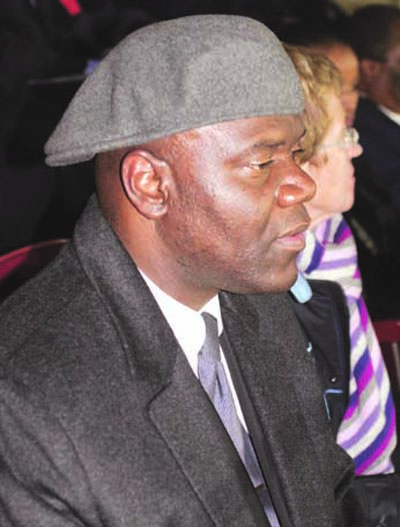 Mutambara as a principal.
Mutambara as a principal.
And in a bid to justify his baffling actions, Zuma goes even further to tell Mutambara that when Ncube was recognised first by him as facilitator, then by the Sadc Troika and then by the Sadc Summit, Mutambara did not object, which implied his consent! In sharp contrast, Ncube has objected, and Zuma has obliged!
Taking matters into his own hands
Now, Zuma obliges as who? As father-in-law of the Ncube’s son? As facilitator of Sadc? What is the status or weight of Ncube’s objection in the scheme of things? What is Zuma’s power over such an objection? These questions are enough to peel the banana, placing its rind right in the sloppy road the South African president is fated to travel as a facilitator on the Zimbabwean question.
Faced with such an objection — whose essence by the way lies in decisions by Zimbabwean courts — Zuma should have halted his mediation forthwith, to seek resolution on this key issue of interlocutors.
He had three clear avenues: consulting principals to the Zimbabwe question, thereby doffing to the all-sensitive issue of sovereignty; taking Ncube’s matter to the Troika for possible resolution; thirdly taking the matter up to Summit which gave him the task in the first place anyway. Or the fourth one, to let the status quo subsist until the Zimbabwean courts arrive at final determination. He did not have to oblige. He did none of the above.
The mission that failed a president
The second culprit might very well be his Harare mission led by its ambassador here. Not that this possibility removes Ncube from the scene. Quite the contrary, Ncube would have triggered it. What the second scenario does is to speculate on the kind of advice the President might have got from his local staff at the embassy, following Ncube’s formal objections. That advice could then have got Zuma to depart from the original position announced to the press by his own minister. If that is the case, the local mission created quite a situation, an invidious one at that, for the South African president.
He has trespassed, and done so in a way that triggers instant reaction from a Zimbabwe so wary of, and touchy about its own sovereignty. The South African President cannot descend to the level of intra-party politics without meddling in our internal affairs as a sovereign country.
Or worse, without appearing to subordinate his otherwise magisterial role of facilitator to reprehensible impulses borne out considerations of petty consanguinity. His facilitation role is inter-party, not intra-party, a domain for Zimbabweans.
Whatever prompted him to take the position he took on Mutambara, he cannot run away from the fact that a father to his son-in-law stands to benefit by it. And Arthur carries the sympathy card which all fair-minded men and women are sure to read.
No veto over a draft!
The formations’ other arguments against further changes to the draft document amount to amazing self-abnegation. Tsvangirai’s line to regional leaders, apart from his astounding claim that latest opinion polls give him 86 percent support against President Robert Mugabe, is that principals have no “power of veto” over the draft! It is an argument, which far from conveying a sense of selflessness it was intended to, loudly conveys embarrassing senselessness. Just juxtaposing “veto” and “draft” finishes it, does it not? Except in the eyes of the daft, a draft need not be vetoed! It is definitionally incomplete anyway.
It only needs to be worked on until it graduates from its draft status to the higher status of an officially adopted document. And only principals – its intended final consumers short of the people or their representatives — can make it one.
And to have one of the principals renounce power over a draft on behalf of his mates he has not consulted, or indeed on behalf of his unthinking self, invites hair-raising humour. By upgrading his agent to the principal wielding a final say over a matter he is subcontracted to negotiate for him, Tsvangirai has renounced — unwittingly renounced — the presidency of his party to Douglas Mwonzora, a subaltern.
It’s an abdication, one made possible through ignorance and sheer inability to reflect on the implications of a position written for him to carry and articulate out there! I am sure peels of laughter followed him to every Sadc doorsteps he opened. Such an unreflective leader should be kept very far away from power, very far away indeed.
Welshman’s Dilemma
Of course Zimbabweans do not know what the real situation is behind the scenes. The real doughty objector to any review of the constitutional draft is not Tsvangirai who is merely hoping to use this one matter to placate Welshman after the latter’s show of electoral strength in parts of Matabeleland. The real doughty objector is Welshman Ncube. And he has reason to fear any scrutiny of the draft. After the Zanu-PF review, the word “devolution” is nowhere in sight.
Nowhere!
 Decentralisation, yes, but not devolution. The view of Zimbabwe as a unitary state is firmly upheld, while the idea of giving regions some say in the day to day running of the affairs of the state will have to find expression within the scope of decentralisation. With what happened in Caprivi, what the Lozis are seeking to do in Zambia, the instability in Eastern DRC, the potential irredentist sentiment in Angola and other Sadc states, the mayhem in Mali, the mood for constitutionally baptised break-away politics is just not there on the continent. Ncube needs to reckon with that, unless he seeks enclave leadership, which he can easily get to nowhere.
Decentralisation, yes, but not devolution. The view of Zimbabwe as a unitary state is firmly upheld, while the idea of giving regions some say in the day to day running of the affairs of the state will have to find expression within the scope of decentralisation. With what happened in Caprivi, what the Lozis are seeking to do in Zambia, the instability in Eastern DRC, the potential irredentist sentiment in Angola and other Sadc states, the mayhem in Mali, the mood for constitutionally baptised break-away politics is just not there on the continent. Ncube needs to reckon with that, unless he seeks enclave leadership, which he can easily get to nowhere.
Both are set to lose
Which creates quite a mouthful for Welshman Ncube and his faction. Firstly, if he feels so strongly about the issue of devolution, well, let him go to the polls on the strength of it. I don’t see Zanu-PF shifting on that one, even if this threatens the draft. Equally, the problem which Zuma has just created for him has but one answer: early elections. Zuma shall not be allowed to cherry-pick interlocutors in his facilitation bid. He cannot solve MDC-M’s leadership wrangles, let alone attempt to do so ahead of our courts. That will not fly, which is why he should never have waded into the mess in the first place. After all who brought Mutambara into the politics of Zimbabwe? It was not Mugabe. It was not Tsvangirai. Rather, it was Welshman who now seeks to make Mutambara’s ouster every man’s problem. Well, he has one fastest way: elections, in which case both he and Mutambara will be ousted!
Zanu-PF’s changes
So the issue of devolution is out. Equally, the idea of tinkering with presidential executive powers is also out. I am still to find in the world a constitution which takes away powers of deciding to dissolve Parliament from a sitting president, all to repose them in Cabinet. More stridently, the values and ideals of the liberation struggle shall have a pervasive presence in the draft, including as a judicial principle and as an ultimate test for the behaviour and performance of all state institutions, independent or statutory.
Similarly, the issue of empowerment will become a constitutional issue, indeed a raison de être for the State which must ensure all categories of persons, including war veterans, the youth, the disabled and women are embraced by empowerment programmes. The issue of dual citizenship is now definitively thrown out, as is also the issue of deviant liaisons, whether by way of same-sex marriages or homosexual and lesbian affairs.
Funding of political parties by foreign interests will be disallowed completely. The mating clause falls away, and our Prime Minister will only be too grateful to Zanu-PF for dealing with that vexatious one. More significantly, all beneficiaries of land reforms are protected against arbitrary dispossession, while Chiefs, themselves real custodians of the land, may have their jurisdiction over newly acquired lands outside of the communal ones regularised and recognised. The powers of the office of the attorney general have been restored as before. Lastly the amended draft will qualify fundamental rights on grounds of national security and national public interest, among other grounds standard to most constitutions.
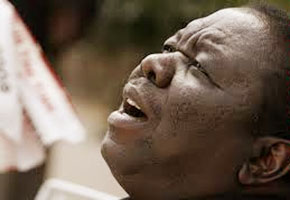 That magical day in August
That magical day in August
I leave lawyers to haggle over this raft of far-reaching changes Zanu-PF is proposing and which; by the way the facilitator is now acquainted with. It helps as lawyers argue over merits and de-merits of all those proposed changes to bear one issue in mind.
Come August 30, the President is required and must be seen to be moving in full compliance with the Supreme Court Judgement on by-elections. That means two or so weeks from now. He has no intention of dealing with just the three constituencies raised in court. He intends to deal with the 38 or so vacancies at all legislative levels right down to councillors. A cursory look at the geographic incidence of those by-elections will show that practically the whole country goes to the polls. He has to decide whether this is just in respect of those vacancies or simply to call for harmonised general elections which are already due anyway. The President has between now and August 30 to be shown in which direction the whole constitutional matter is going.
If it’s in the direction of consensus and therefore a referendum, well and good then. If it’s in the direction of an impasse, then that impasse must be declared before or by August 30. Either way, the nation goes for elections.
Too dirty to write constitution
My endnote is Gramscian. Evidently, the constitution-drafting stage has not shown itself to be either politically or legally neutral. Against all pretensions, we are not seeking to author a document for all times, for all generations. Our generation is just too dirty, too unready for that.
We are embroiled in power politics, which is what makes the so-called constitution-making phase in the life of our nation nothing more than a juridical phase — hopefully a short one — in a broader struggle for power and control. That broader struggle started with an election, more accurately with an electoral crisis.
It shall end with another election, hopefully shorn of a crisis, with the GNU and Copac as in-between sub-processes. The writers of an enduring national constitution will emerge after the resolution of broader political question. Copac has given us raw material for eventual constitution-making; the same way 2000 gave us one. Yes, I agree with mukuwasha Chamisa, the real constitution shall be drafted after elections. What we have now is part of the ensuing power struggle.
Jurisprudence and law
That takes me to Antonio Gramsci, the Italian Marxist. His arguments in jurisprudence are always fascinating. He grudgingly acknowledges the role of custom in the formation of human law. He dislikes the imputation that follows from this; namely that this therefore suggests that the law is an integral expression of society as a whole. He gets drastic: “The law does not express the whole of society (if it did, those who break the law would have to be considered antisocial beings by nature or mentally deficient); the law, rather, is an expression of the ruling class, which “imposes” on the whole of society those norms of conduct that are most tightly connected to its own raison d’ être and expansion.” In terms of available knowledge nowadays, that wonderful insight then has become quite trite now.
The role of lofty ambition
Where Gramsci really gets me going is when he legitimises political ambition, while categorising it by goal and purpose. He writes: “It is in the character of every leader to be ambitious, that is, to aspire with all his energies to wield state power. An unambitious leader is not a leader and is a dangerous person for his followers: he is inept and cowardly. Recall Arturo Vella’s statement: ‘Our party will never be a ruling party’; in other words, it will always be an opposition party.”
I am tempted to stop here to weigh what Tsvangirai actually means by denying principals veto power over the Copac draft constitution. Or seeking a draft constitution which strengthens Parliament while weakening the Executive. But there is more value in what follows. Gramsci then draws a distinction between “lofty” ambition and “petty” ambition. The latter seeks to grab personal power at any cost, including “scorching everything around”. The former locates its rise within “the rise of an entire social stratum”. Needless to say Gramsci is for lofty ambition which repudiates its own origins by working towards a constituent task for organic political results which advance interests of the masses.
Raising a social stratum
As we deal with the question of constitution drafting, we should never forget these Gramscian precepts, namely that we are in the terrain of class-based power struggles. Or that we must test all the suggested amendments, or rejection of them, by what they do to a whole stratum of people, our people.
And the fate of our people is not defined by jobs. That fate was long defined, was defined well before Independence when we were all chattels of white power. Indeed defined even after Independence when we still remained servile under a seemingly happily fluttering flag. And as events on platinum mines of South Africa this week have just shown, such a status as job-seekers, job-holders, may even cost us our lives as the State — supposedly a creature of our own collective sacrifice — turns around, armed, to shoot 30 or so of us dead.
The State can be occupied by the same settler or mining class that lorded over us before our freedom era. Our fate rests in land, rests in the control of mines, and other national, natural resources that belong to us. A draft that offers us this new level of social power — however unrealised — puts our struggles on another pedestal. It advances a substratum.
Icho!




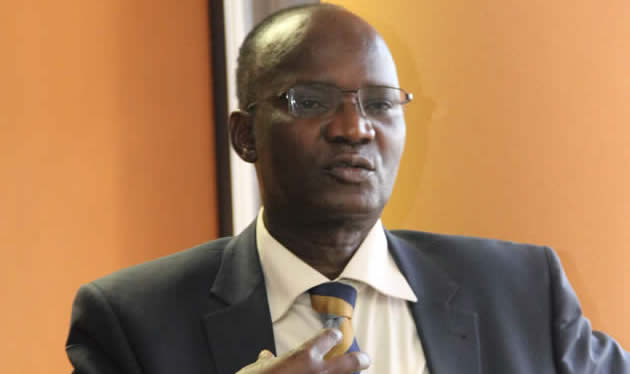
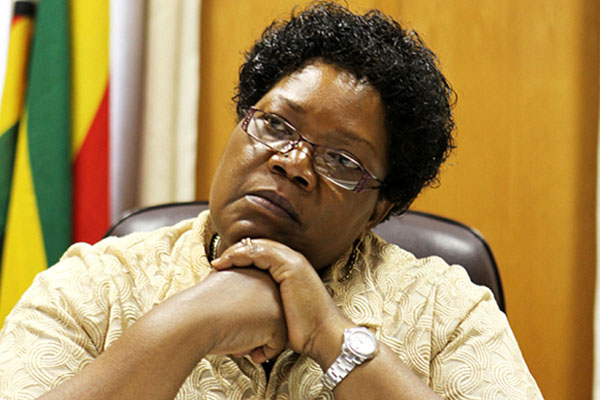


Comments